With systematic precision, and with subtle wisdom born of a lifetime of practice, Rodney Smith uses science, psychology, and traditional Buddhism to explain the unexplainable: the how and why of authentic spiritual awakening. The books thorough and remarkable argument is bolstered throughout with subtle exercises that guide the reader to experiential appreciation. Radically simple, but never facile or easy, Awakening is an original work by a contemporary spiritual master at the height of his powers.
Norman Fischer, author of Training in Compassion: Zen Teachings on the Practice of Lojong
Rodney Smith presents the results of the shift of view that spiritual practices aim for. This approach helps the reader to review his/her spiritual path from a fresh perspective and to avoid effort based on the self-paradigm that is the main obstacle to awakening. This book has much to offer and can be read and reread many times for wise reflection.
Ajahn Sucitto, author of Turning the Wheel of Truth: Commentary on the Buddhas First Teaching
ABOUT THE BOOK
What is enlightenment? Rodney Smiths answer to that elusive question offers an explanation not only of the radical shift in perception that the word enlightenment connotes, but of the entire topography of the journey from beginning to end, of the multiple ways we undermine the very growth we seek, and of the awakened life that ultimately arises out of the new consciousness.
RODNEY SMITH is the founding and guiding teacher of the Seattle Insight Meditation Society and a guiding teacher at the Insight Meditation Society, Barre, Massachusetts. He is also the author of Lessons from the Dying and Stepping Out of Self-Deception: The Buddhas Liberating Teaching of No-Self .
Sign up to receive news and special offers from Shambhala Publications.

Or visit us online to sign up at shambhala.com/eshambhala.
Awakening
A Paradigm Shift of the Heart
RODNEY SMITH
 Shambhala Boston & London 2014
Shambhala Boston & London 2014
Shambhala Publications, Inc.
Horticultural Hall
300 Massachusetts Avenue
Boston, Massachusetts 02115
www.shambhala.com
2014 by Rodney Smith
Cover art: iStockphoto
Cover design: Gopa & Ted2, Inc.
Quotation from Lorca & Jimenez by Robert Bly
Copyright 1973, 1997 by Robert Bly
Copyright 1967 by The Sixties Press
Reprinted by permission of Beacon Press, Boston
All rights reserved. No part of this book may be reproduced in any form or by any means, electronic or mechanical, including photocopying, recording, or by any information storage and retrieval system, without permission in writing from the publisher.
Library of Congress Cataloging-in-Publication Data
Smith, Rodney (Teacher)
Awakening: a paradigm shift of the heart / Rodney Smith.
pages cm
eISBN 978-0-8348-2963-3
ISBN 978-1-61180-126-2 (paperback)
1. Spiritual life. 2. Spiritual lifeBuddhism. 3. Spirituality. 4. Enlightenment (Buddhism) I. Title.
BL624.S59485 2014
204.2dc23
2013022309
I have a feeling that my boat
Has struck, down there in the depths,
Against a great thing.
And nothing
Happens! Nothing... silence... waves...
Nothing happens? Or has everything happened
and are we standing now, quietly in the new life?
JUAN RAMON JIMENEZ
Contents
This book is dedicated to everyone who explores their curiosity to complete satisfaction, and a deep bow to my teachers who did just that.
A special thanks to Nancy Burnett and Parker Huey for their editing, both of whom have the power to transform words into an understandable narrative, and to Ellen McCown, who skillfully drew the diagrams and encouraged me throughout the process. Heartfelt appreciation to Joseph Goldstein and Ajahn Sucitto for their comments and suggestions.
You that come to birth and bring the mysteries,
Your voice-thunder awakens us.
Roar, lion of the heart,
And tear me open.
RUMI
Many of us do not understand what spiritual transformation requires. We may think of it as a slight alteration or deviation from our normal routines or perhaps merely an inconvenience. Life after this adjustment will go on pretty much as before, though we will be wiser and more judicious in our actions of body, speech, and thought. If we follow the Buddhist path, we may have a more penetrating understanding of the causes of our conflicts and torments. We may perceive our motivations and thoughts with more subtlety and generally live in a lighter, more joyous manner. These are the adaptations that occur when anyone allows the dharma to affect his or her consciousness, but they are not the full story. The transformation that I am referring to in this book is a complete shift of paradigms, a total reorganization of perception. It is not an adaptation but a merging with and an abiding within reality.
This book attempts to explain genuine spiritual realization. When we speak of enlightenment and awakening, what do we mean? What actually occurs when we slip beyond consensus or conventional reality, and why would we undertake such a journey? This book looks at the topography of the journey from beginning to end, the multiple ways we undermine the very growth we seek, the shift in consciousness that does occur, and the life that arises out of that shift. The book was written to unmask the process of awakening, to expose it completely and free it from cultural and arcane language. When Buddhist references are appropriate, they are used, but for the most part this journey is unique to each traveler and therefore difficult to categorically map within any spiritual structure.
What inspired this book was the dearth of information on the radical shift of paradigms that occurs when moving through and beyond our current perceptions of reality. There are spiritual books that speak eloquently on the process of awakening, and books that prepare the student for awakening, but few that actually describe the alterations in perception and the accompanying mental reorganization in awakening. Many books seem to work around the adaptive spiritual changes that occur by explaining how spiritual practice improves our lives and increases our fulfillment, but the central issue in spiritual growth is not self-enhancement but self-understanding. The movement through the isolated objects of the world into the wonderment of interconnection is the spiritual journey. But are there causal conditions that facilitate this movement, and what, if anything, does that process need from us? Where does this shift ultimately take us, and what happens to me during the process?
Buddhism is my spiritual home, but it is not the only guide available. I will frequently reference Buddhism because that is what I know, but I call upon the reader to find verses from his or her own system to lead him or her forward. Every tradition offers the reassurance of those who have safely gone before, but that does little to diminish the fear and trepidation almost all of us feel as we journey the path alone. This is ultimately a path through our aloneness that ends within the unifying stillness of all things. This book is not only a companion guide through that journey but equally a workbook toward its completion. Sidebar exercises are offered throughout the chapters to experientially bring some of the more abstract points into concrete realizations. Genuine transformation is governed by realization, by how much we truly allow in and how much we actually open and ingest the principles mentioned.
The book is divided into three loosely organized sections with considerable overlap among them. The first four chapters are an attempt to understand the transformative qualities of this paradigm shift of the heart while offering an overview of the problems intrinsic within consensus reality. We see how the perception of separation arose over time to secure a habitat for our species. We look at the value of seeing the world as separate and the limitations that are inherent within that perception. We also examine how the mind has arranged its internal processes to support the perception of separation, and the way that life lines up within that distortion. We explore mentally created laws like time and distance that are true only within the consensus paradigm and the principles that accompany the holistic nature of mind once freed of its internal division.
Next page
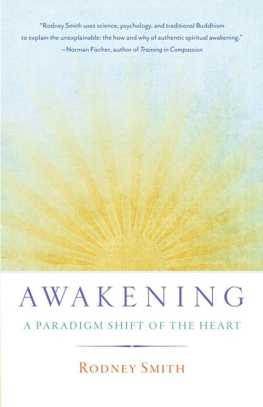





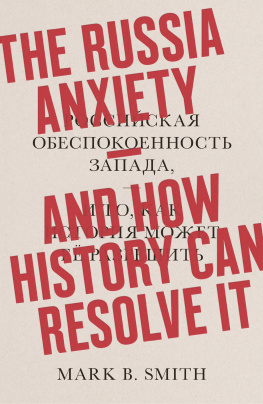
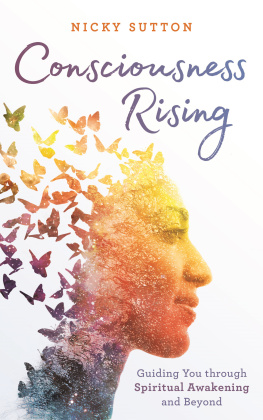


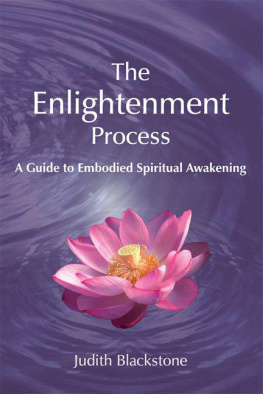
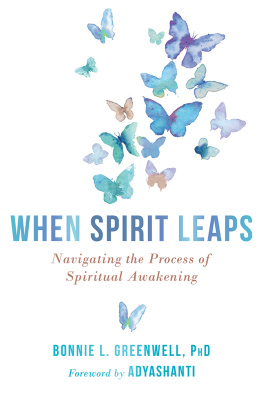
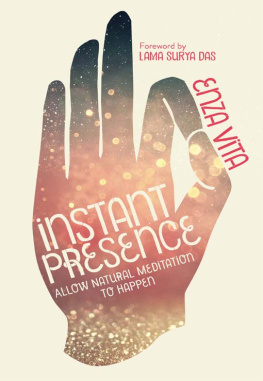
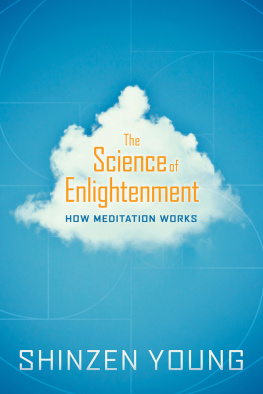

 Shambhala Boston & London 2014
Shambhala Boston & London 2014